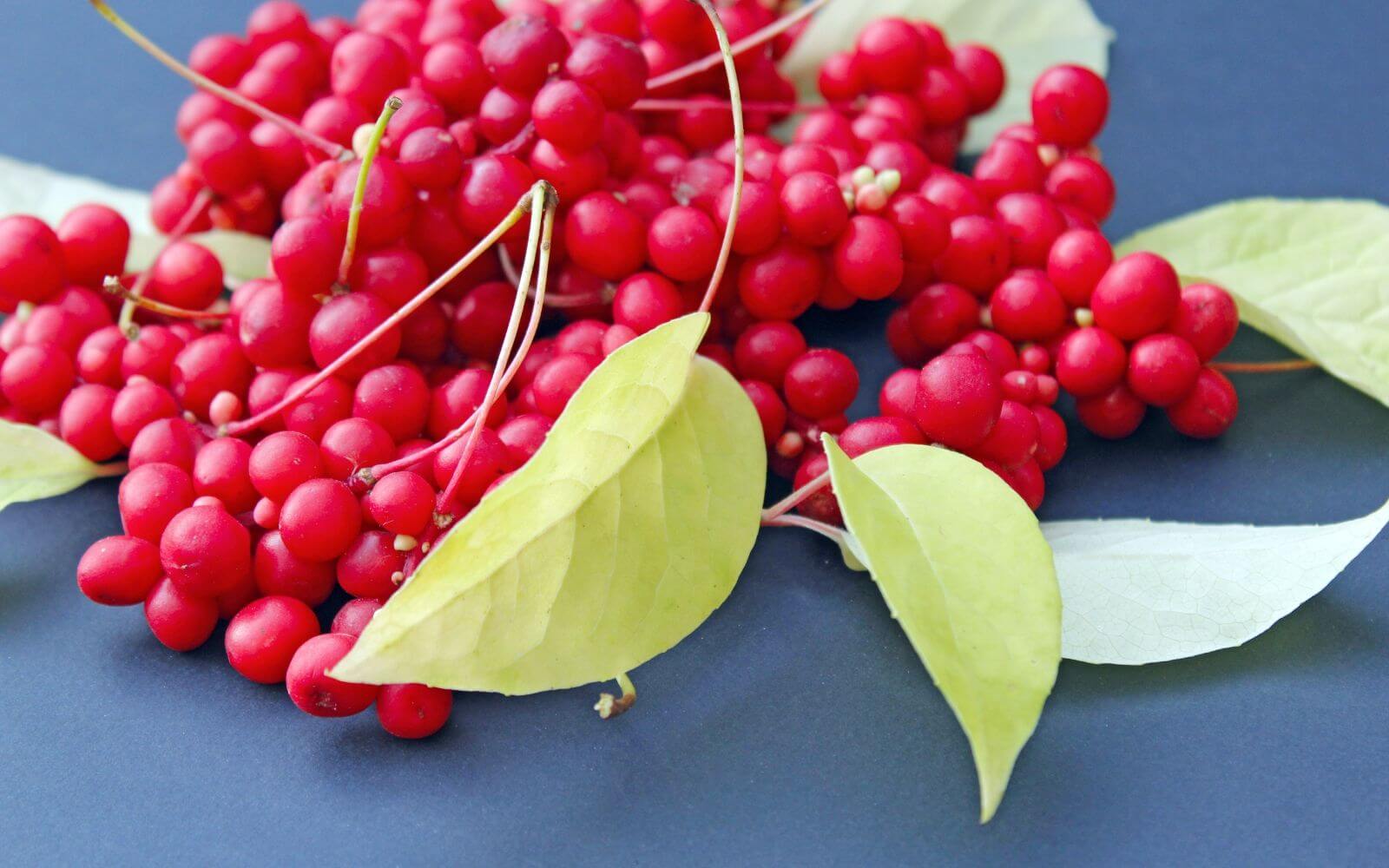
Schisandra – five flavours, versatile effects
It is small, red and one of the most important medicinal plants of Traditional Chinese Medicine (TCM): the Schisandra berry. The so-called fruit of the five flavors (Chinese: Wu Wei Zi) tastes sweet, sour, bitter, spicy and salty at the same time. In Traditional Chinese Medicine, each flavor has its own special healing power. The Schisandra berry thus strengthens the five yin organs: liver, kidney, heart, lungs and spleen.
Wu Wei Zi: small, but mighty!
The tradition of schisandra as a valuable remedy in folk medicine goes back a long way. In the 60s, adaptogen research in Russia reached its peak. Pharmacological and clinical studies have shown that Wu Wei Zi reduces stress, stimulates brain performance, strengthens heart function and optimizes athletic performance. Schisandra also protects the cells and regulates
- the central nervous system
- the autonomic nervous system
- the endocrine system
- the cardiovascular system, and
- blood pressure and respiration.
Since schisandra also counteracts excessive sweating, it is a popular remedy for menopausal symptoms.
Many valuable ingredients in the smallest of spaces
The special thing about this berry: Schisandra is a so-called adaptogen, so it can respond to a wide variety of sensitivities in a non-specific way.
Schisandra includes about 30 species. The hardy shrub is native to China and Russia and thrives on almost any soil. Leaves and bark smell lemony due to the special lignans, also called schizandrine. Lignans are phytochemicals with an estrogen-like effect. Seeds and berries contain cell-protecting tannins, linoleic acid, linolenic acid and some organic acids, such as malic acid, citric acid or tartaric acid. It also contains essential oils, vitamins A, C and E and beta-carotene. In addition, there are minerals such as potassium, sodium, calcium, magnesium as well as phosphates and sulfates. The berries also contain pectins and antioxidant flavonoids to promote digestion, as well as catechins and anthocyanins that can protect against cancer.
More power and concentration without stimulating
In TCM, Schisandra is often used to calm the mind and counteract stress-related palpitations, sleep disorders and anxiety. On the one hand, Schisandra has a relaxing effect and reduces anxiety. On the other hand, it stimulates the central nervous system and thus improves responsiveness and brain performance.
People who suffer from stress regain more security and the feeling of being able to actively do something about their situation. In this way, schisandra can also help in cases of burn-out, fatigue and depression.
However, Schisandra does not have a stimulating effect, but only stimulates the energy metabolism and strengthens it sustainably. Of particular interest to athletes is the fact that Schisandra supports the production of ATP, a unit of energy in the body. In addition, the pumping capacity of the heart increases, which means that the cells are better supplied with oxygen.
The endocrine system also benefits from Schisandra
Schisandra also has other positive effects on our well-being. Thus, the medicinal plant also has a regulating effect on the endocrine system. The berry compensates for both too low and too high hormonal status, ensuring optimal condition. As already mentioned, the estrogen-like effect of the berry is particularly beneficial for menopausal women.
Healthy liver, glowing skin
According to studies, schisandra also protects the liver. Chronic hepatitis has been improved by Schisandra and it has been shown that the treatment can protect against alcohol-related liver damage. When taken daily, the formation of bile and digestive enzymes increases, which ensures better food utilization.
Last but not least, Schisandra also acts as an anti-aging agent. It helps the skin retain moisture and makes it firmer. Overall, the skin is better supplied with blood and appears more radiant.
We recommend the following product:
Do you have any questions? Then feel free to use our contact form. We look forward to your inquiry.





 4c media
4c media